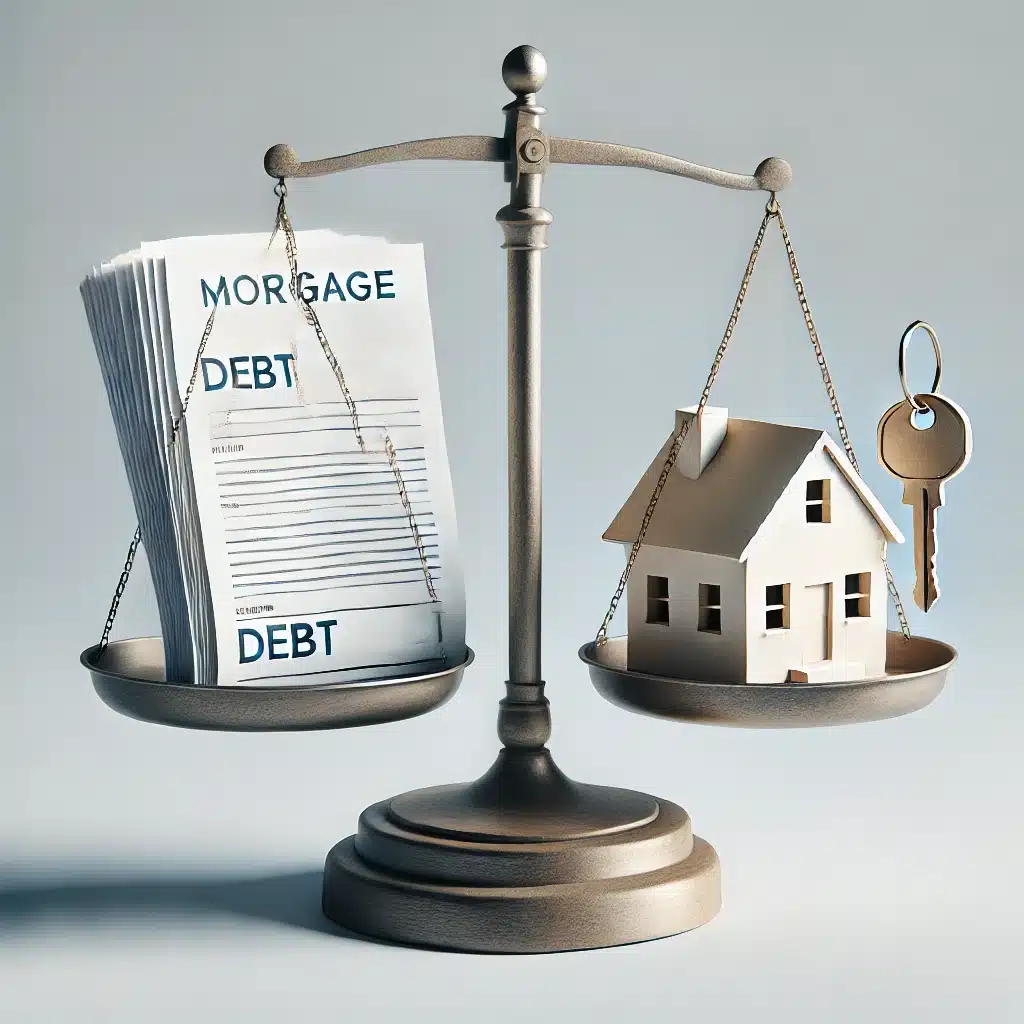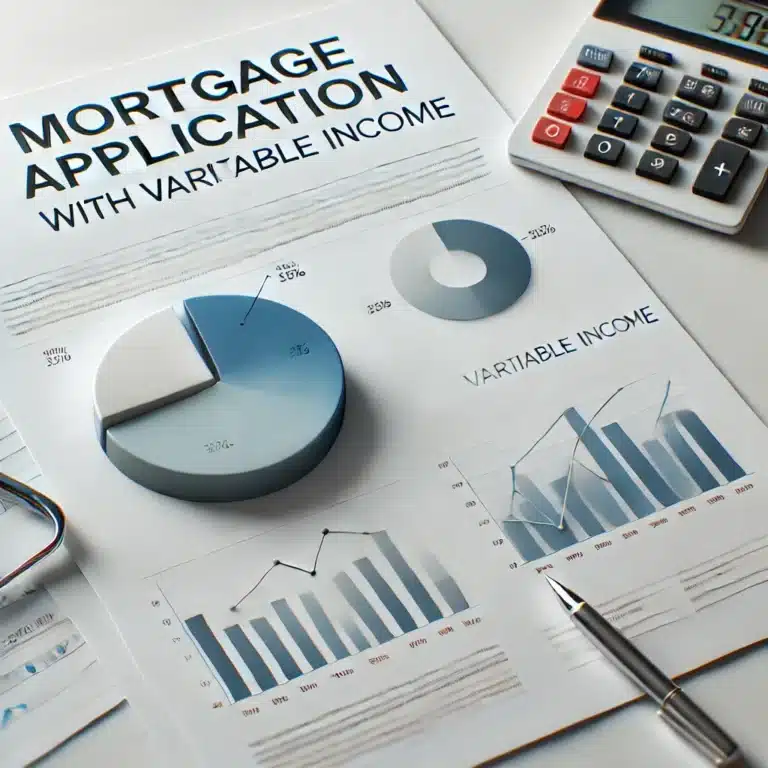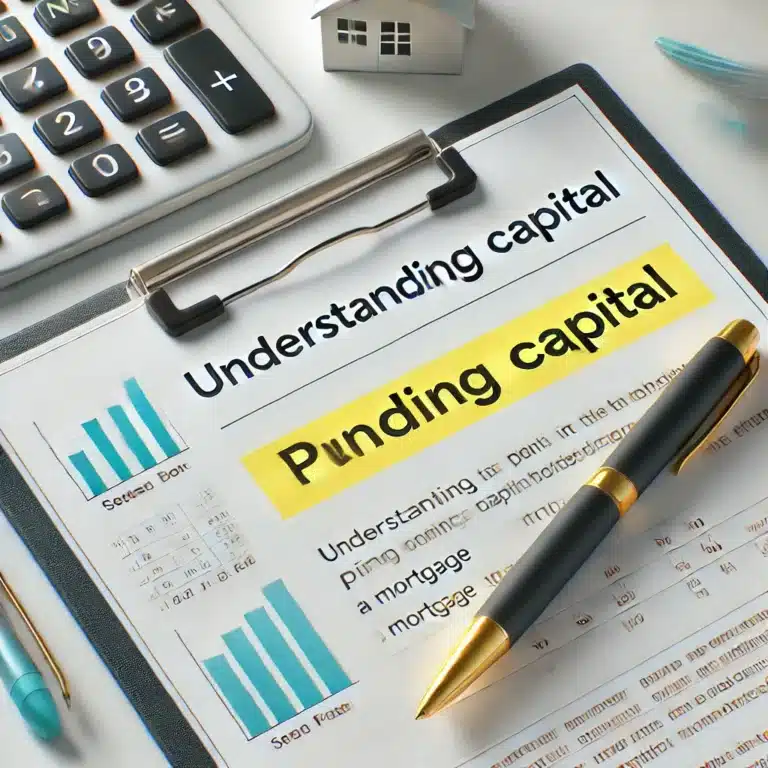
Applying for a mortgage while in debt may seem complicated, but it’s not impossible. Financial institutions analyze your financial situation in detail before approving the loan, and existing debts play an important role in their decision. However, with the right strategies, you can increase your chances of getting a mortgage even in these circumstances.
1. What Do Banks Analyze When Reviewing Your Debts?
When you apply for a mortgage, banks evaluate both your income and your financial history. They pay special attention to the following aspects:
- Debt ratio: This indicator measures the percentage of your income that goes to debt repayment. Generally, it should not exceed 30-35% of your monthly income.
- Type of debt: Not all debts are affected equally. For example, small personal loans have less impact than credit cards with high balances.
- Payment history: Banks check if you have been late or defaulted on your financial obligations, as this reflects your credit responsibility.
2. Can I apply for a mortgage if I have small debts?
Yes, it is possible. Small debts, such as a personal loan or installments for the purchase of an appliance, are not usually an impediment, as long as they do not significantly affect your debt ratio. The important thing is to demonstrate that you can take on a new obligation without compromising your finances.
3. What if I Have Significant Debts?
If your current debts are high in relation to your income, you may face more difficulties in obtaining a mortgage. However, there are ways to address this situation:
- Negotiate your current debts: Reducing monthly payments or consolidating debts can help you improve your debt ratio.
- Increase your income: Additional income, such as side jobs or rentals, can strengthen your financial profile.
- Find a guarantor: A guarantor with a solid financial history can bring confidence to the bank.
4. Options if You Have Debts and Want a Mortgage
There are alternatives for those who have debt but wish to obtain a mortgage:
- Longer term mortgages: By extending the term of the loan, monthly payments decrease, improving your debt ratio.
- Specific products for profiles with debts: Some entities offer mortgages adapted to people with debts, although with more restrictive conditions.
- Debt consolidation: Consolidating your debts into a single loan can reduce interest and monthly payments.
5. The Impact of Credit History
Your credit history is crucial in the bank’s evaluation. While having debt is not necessarily a problem, making timely payments demonstrates financial responsibility. On the other hand, recurring defaults or late payments can make it difficult to get approved for a mortgage.
6. Steps to Applying for a Mortgage with Debt
If you decide to apply for a mortgage while in debt, follow these steps to improve your chances:
- Calculate your debt ratio: Make sure that your debts do not exceed 35% of your monthly income.
- Organize your documentation: Gather proof of income, bank statements and details of your current debts.
- Seek financial advice: An expert can help you prepare your profile and negotiate with banks.
- Compare offers: Some entities are more flexible than others; explore different options.
- Be prepared to provide additional collateral: Having a guarantor or assets as collateral can increase your chances of success.
7. Common Mistakes When Applying for a Mortgage with Debt
Avoid these mistakes to improve your odds:
- Hide information about your debts: Banks have access to your credit history, so it is better to be transparent.
- Overestimating your ability to pay: Applying for a mortgage without evaluating your finances can lead to rejection or unfavorable terms.
- Do not negotiate: Many times, banks are open to offer more flexible terms if you demonstrate interest and ability to pay.
Conclusion: Organize Your Finances to Reach Your Goal
Although debt can complicate obtaining a mortgage, it is not an insurmountable obstacle. With proper financial management, transparency and the support of specialized advisors, you can build a solid financial profile and gain the confidence of banks. The dream of owning your own home is still possible with planning and effort.



